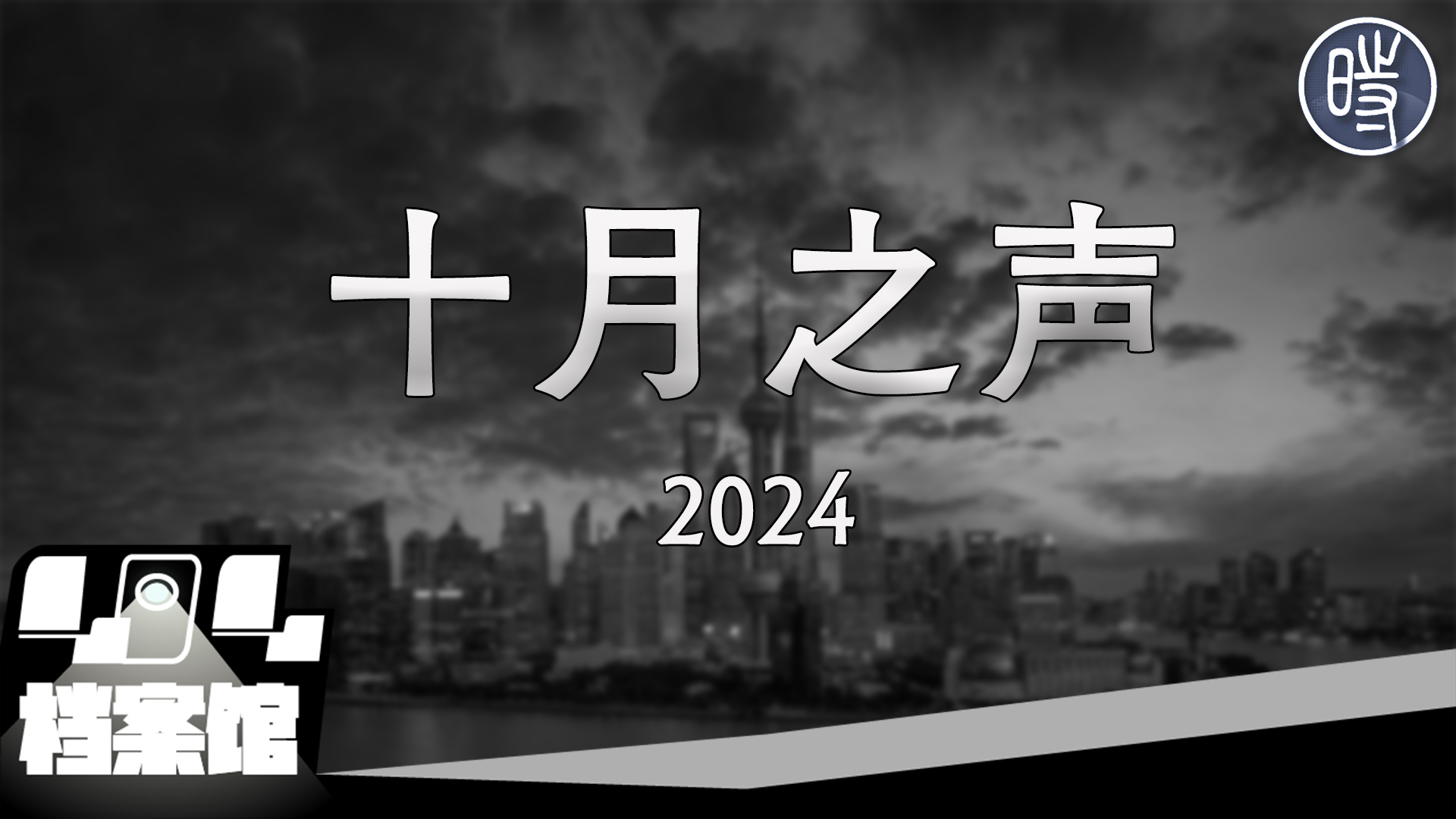来自: Global Voices Online – FeedzShare
发布时间:2010年08月15日, 已有 4 人推荐
By Gabriel Nada
The Chinese Propaganda Department has issued notice to mainstream and online media outlets regarding the recent disaster in Zhouqu. For the Chinese government, it is a time to mourn rather than digging up the man-made mistakes. Reporters, hence, have been asked to leave the landslide area. However, if we don’t admit the man-made mistakes, how can we prevent future ones?
最大的天灾就是从来不承认有人祸
The above quote is one of the hottest QQ micro-blogpost by Lian Yue (连岳). So long as culpability for the human role in ‘natural disasters’ is ignored and denied we will continue to see occurrences of human suffering and loss around the world. Staying within the scope of this post to deal with the world inside China, we can look back over the last 8 months of 2010 and see an enormous amount of wasted potential, energies and lives through ‘natural disasters’ in which either human hands played a role in bringing these events about in the first place, or better human planning, foresight, and recognition of the conditions could have prevented such serious consequences.
Indeed, on SOSO’s blog search for ‘natural disaster’ (天灾), the first result returned is a blog entitled Natural Disaster together with Man-made Disaster (天灾与人祸) by blogger ‘Small Qiao Running Water Family’ (小桥流水人家). Just three results down is the title Regarding Natural Disasters, Can We Only “Blame Nature” and not “Fault People”? (面对天灾,我们能只“怨天”不“尤人”吗?) posted by ‘Good Morning!’ (早安) Directly following this post is Southern Region’s Water Crisis- Natural Disaster or Man-made Disaster? (南方水灾天灾还是人祸?) by ‘Sacred Land Mother Earth” (神州大地).
What is the human role behind the toll of natural disaster?
As of this posting, of the first 10 results on SOSO, 5 of the titles specifically question whether these ‘natural disasters’ should really be considered natural disasters. 8 of the 10 deal with precisely this subject of when does the real responsibility for the grave human and economic consequences of ‘natural disaster’ truly lie with humanity and not nature?
Writing on July 20th 2010, QQ user, Struggle (奋斗) says,
地震没多久,又来大水了,每天都在宣传,史上最猛的洪水,超过九八年的。
九江又决堤了,也超过九八年的。年年拨款,年年筑堤,年年防汛,年年抗洪,结果咧,该淹没的还是没了,不该决堤的也决了。九八年的时候出现了个工程,学名叫做豆腐渣。从地震和大水来看,这个工程在中国遍布神州啊,估计大禹要是活着也拿这水没招。
每次出现这些天灾,政府都是快速反应,全民捐款,然后来,当天灾再次来临,AGAIN。只能说,政府这事后诸葛亮当得还是比较称职的,那平日的那些关系民生国计的工程起什么作用呢?地震的时候学校医院倒了,大水的时候堤坝垮了,来战争的时候部队散了,整人的时候来劲了。从没说起过追究责任,难道在天灾面前就可以忽略人为的因素,每次看见敬爱的温总理,总是在想,好人,但那是你应该的,每次看见部队在抢险,总是琢磨,感人,但那也是应该的。在这些事面前,这是政府职能,反倒是忽悠百姓捐款不靠谱,群众不能为政府的过失买单。
只提天灾,不讲人祸。
Jiujiang’s dam burst again- also worse than in ‘98. Funds are allocated every year, dikes are built every year, flood control every year, fighting floods every year- the results? Children crying. Areas that are supposed to be submerged are wiped out. Where the dam shouldn’t burst it bursts. In ‘98 an engineering project was put in place, scientifically known as “soy bean dregs” [term for a program hastily thrown together without substance]. Surveying the aftermath of the earthquakes and heavy rains, these projects- which are spread throughout China’s sacred land- makes it seems that even if Yu the Great [mythical Chinese ruler from the 21st century B.C.E. who stopped the floods] were living, he couldn’t hold back the waters.
Every time these natural disasters appear the government is quick to respond. Everyone donates. Afterward, the same disaster strikes. AGAIN! Keeping in mind that everyone is a genius in hindsight, one can only say that the government is reasonably competent in dealing with these issues- but in terms of a relationship to people’s everyday lives, what use do these programs actually have? When an earthquake strikes the schools and hospitals still collapse. When heavy rains fall the dams still burst. When conflict arises the army is still scattered. During the time of causing people harm there’s no problem. There’s never an investigation into responsibility. Don’t tell me that in the face of natural disasters we can simply neglect the role of man-made causes. Every time we see beloved President Wen we always think “he’s a good man”, but that’s what he should be. Every time we see the army react in an emergency we always consider it to be touching- but that’s what they should do. When facing these issues, that is the government’s role- not tricking the average people into donating funds. The people shouldn’t be paying on behalf of the government’s bill.
Only natural disaster is mentioned, not the man-made causes.
Looking through a blog search of ‘natural disaster’ (天灾) on 163.com, one also finds the common thread of questioning the nature of why these disasters are so costly in terms of lives, production, economics and the future. As of this posting, 8 of the 10 titles returned for the first page of results on 163.com directly question the involvement of ‘man-made disaster’ (人祸) in the catastrophic aftermaths of these events.
163.com user ‘Safe Harbor’ (避风港) writes in The Main Culprits in Natural Disasters are We Ourselves (天灾的祸首是我们自己):
突如其来的天灾,让人们措手不及,看着惨不忍睹的一幕幕,令人心碎,让我首先想到的是大自然对人类的惩罚,曾经的参天大树,茂密的森林,伴随着油锯的轰鸣,轰然倒下,变成了人们享受的各式用品…堤坝内的清清的河水和堤坝后的柳林是我儿时的天堂,不记得何时,柳林没了,土堤坝变成了厚实的沙石坝,绵延数里,很壮观,换成了另外一道风景。可是在肆虐的洪水面前,它们却是那么的不堪一击!…肆意毁林开荒,带来的结果是植被被大肆破坏,土地不能发挥蓄水的功能…为了发展地方经济,职能部门没有计划的审批,大量的林地,变成了一片片的参园,后续监督的不力,是山坡永远的失去了森林和绿色。同样是为了发展地方经济,招商引资,无计划的建设了数家木材加工厂,连绵数十家,形成了所谓的产业园区,领导政绩抹上了浓浓的一笔,带来的后果,谁考虑了呢?当时,林业专家们难道真的不知道后果吗?合法的木材审批指标能够满足这么多业户的需求吗?…无论是谁,在经历这场天灾之后,都应该认真的想想了。
What seems to be further evidence of poor human and government policy and planning comes from ‘Very Green’ (何青青) in a piece entitled Please Permanently Remember this Unpunished Sin—Incontrovertible Proof that Man-made Disasters exceed Natural Disasters (请苍天记住这笔孽债—人祸甚于天灾的铁证 ):
2010年7月6日新京报A26版登载了一条很不起眼但却触目惊心的消息:防洪水库内建千栋别墅!
报 道说“1958年的那场特大水灾,促成了苦池水库的建设。苦池村所在地天然地势低洼,每每发水,始建于后魏正始二年的人工渠道无法分流洪水,苦池村及周围 村庄总是被淹。1958年,政府在苦池滩修建调洪区,即现在的苦池水库。……1959年建成后,运城没再出现特大水灾。苦池村村民介绍,2006年,在干 枯多年后,库区修建了180亩的东湖,并在水库南部造假山,许多地方开始建房。2009年,这里变成了运城‘东花园’。”
据 有关资料称:水库里最大的非防汛永久性建设项目是占水库面积三分之一的“企业老板别墅区”。该别墅区的官方名称叫“关公企业之家会员俱乐部”。对于记者提 出的有无合法手续、何时售房、房价如何等疑问,一个名叫张俊的经理说:“所有手续齐全,包括土地证、房产证等预售五证全有。每平方米的价格为7000元到 15000元,每栋500万左右吧。”他说,“我们主要面对中小企业家群体,是为这个阶层服务的。”一位当地知情人对记者表示“就是为山西煤老板们建设的 煤老板别墅区。”
The report stated: “1958’s great flood facilitated the building of the reservoir. The natural site of the reservoir village was in low-lying terrain. The old irrigation ditches which had been started were not enough to divert the water. The reservoir village and surrounding hamlets were constantly submerged. In 1958, the government built a flood-control basin- the existing reservoir. After its completion in 1959, Yuncheng did not receive more flooding. In 2006, the reservoir village introduced the building of 180 villas as well as a rock garden in the southern part, building in many areas. In 2009 this became Yuncheng’s ‘East Garden’.”
A related piece of information says: the largest permanent structure without flood protection- covering one-third of the reservoir’s surface area- was the “Company Boss’s Villa District”. The official name for the villa district was “Guangong Company Family Member’s Club”. As to questions raised by the reporter regarding whether or not lawful procedure was followed- when the building was constructed, what the price of the housing was, these kinds of issues- a certain Manager Jun Zhang said: “All the procedures were completed- including land deeds, property titles, all 5 of the official certificates for the advance sale of property. Each square meter was between 7000-15,000 RMB. Each structure was around 500 square meters. ” He continued,”We principally served small and medium sized business entrepreneurs- that segment of society.” An informed local source told the reporter “it was built for the Shanxi Coal bosses, a Shanxi Coal boss villa district.”
A way forward to prevent these disasters?
While it would be unfair and unrealistic to expect policy and planning to prevent all future loss of life and property from genuine natural disaster, certainly an improvement to existing practice and policy can be asked and expected. It seems clear that in many cases individuals, corporations, and even the government itself have ignored what could be seen as fairly clear signs that certain actions were simply disasters in the making- not unavoidable natural disasters but avoidable disasters of neglect and corruption.
yoyo concludes a post entitled After the Disasters (天灾背后……) with this thought:
这些个事情在当灾难都过去了之后,总还是应该要好好地实地做做调查研究,好好地吸取各种经验教训,好好地举一反三,好好学会反思吧?而我们呢,总在被需要的时候,可以极力地督促着别人去进行反思的时候,却总是要刻意地避开自身也是需要好好地、深刻地进行反思的这个关键点!而作为个人却觉得,这些个深刻地反思,对于我们民族自身正确的前进方向、发展道路,才是更加关键的。再在做什么和人民相关的事情的时候,负点责、讲点切实可行的真材实料的工程而千万不要再搞出那些豆腐渣来的可好?因为谁也保不准在他自己的有生之年里,豆腐渣工程不被报出光来的,这是其一;其二呢,豆腐渣工程在关键的时候,赔上去的是几倍、几十倍、上百倍、甚至是更多的人民的生命和财产的安危!
“要翻墙,用赛风”.












